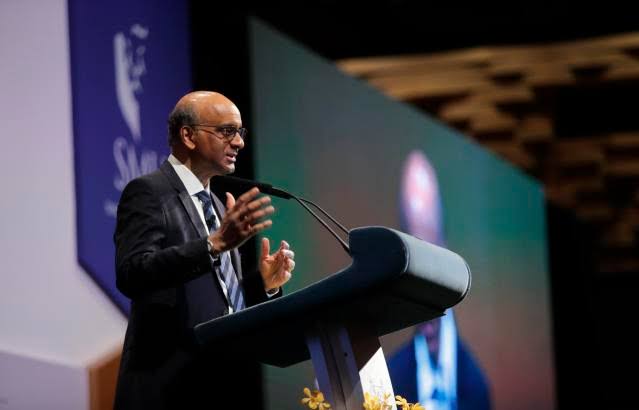The former finance minister of Singapore and current head of the central bank, Tharman Shanmugaratnam, who has referred to cryptocurrencies as “purely speculative” and “slightly crazy,” was chosen to lead the nation on Saturday with 70.4% of the vote, succeeding Halimah Yacob, the nation’s first female president.Although the position is mostly ceremonial, the 66-year-old’s background may give him some sway in influencing legislation concerning the future of finance, including cryptocurrencies, central bank digital currencies (CBDCs), and other topics.After the collapse of local crypto darlings Terraform Labs and Three Arrows Capital while Shanmugaratnam was chairman of Singapore’s central bank, the Monetary Authority of Singapore (MAS), Singapore went from being an early adopter of cryptocurrency to a jurisdiction trying to find the right regulatory balance.
The tenure of that position, which he held from 2011 to 2023, overlapped with his tenure as finance minister, which he served from 2007 to 2015.His career as an economist at the MAS began in 1982 after he earned a Bachelor of Science in Economics from the London School of Economics, a Master of Philosophy in Economics from the University of Cambridge, and a Master in Public Administration from the Kennedy School of Government at Harvard University.The International Monetary Fund (IMF) also placed him on its short list for the position of chief executive.Deputy Prime Minister, among other positions, were held by Shanmugaratnam throughout his 22 years in the legislature. Early on, Shanmugaratnam took a laissez-faire attitude toward cryptocurrencies.When he wrote in 2018, there was no need to outlaw cryptocurrency trading because it did not pose a threat to Singapore’s financial system.
He reiterated that stance in 2023, saying at the World Economic Forum, that crypto is “inherently purely speculative and in fact slightly crazy.” While it should remain an unregulated market, he suggested authorities should provide “ultra clarity” on the risks associated with crypto because to “start getting into a game of regulating products, ostrich eggs or crypto or anything else” would be a “never-ending game.”
Nevertheless, the situation is rather different for banks and stablecoins.According to Shanmugaratnam’s response to a parliamentary question in November 2022, Singapore’s banks must hold $125 in capital for every $100 they have exposed to cryptocurrencies like bitcoin (BTC) or ether (ETH). “Although the jurisdiction’s banks have ‘insignificant’ levels of exposure to crypto – contributing less than 0.05% of total risk weighted assets – these types of crypto assets are subject to the toughest risk management requirements set by international standard-setters,” he wrote.
He continued by saying that tokenized corporate bonds, which are less hazardous crypto assets, are treated prudentially similarly to conventional non-tokenized assets.
In 2021, Shanmugaratnam said “there may be a role for crypto in future finance that extends beyond pure speculation and illicit finance” and that he envisioned a future in which “regulated stablecoins will have a useful role in a traditional payment system.”
In reference to the demise of terraUSD (UST), a stablecoin that had lost its peg to the U.S. dollar the year before, Shanmugaratnam stated in August 2022 that the MAS was “actively reviewing” its strategy to regulating stablecoins and might introduce reserve requirements for stablecoin issuers.A stablecoin regulatory framework was published by the MAS last month.


